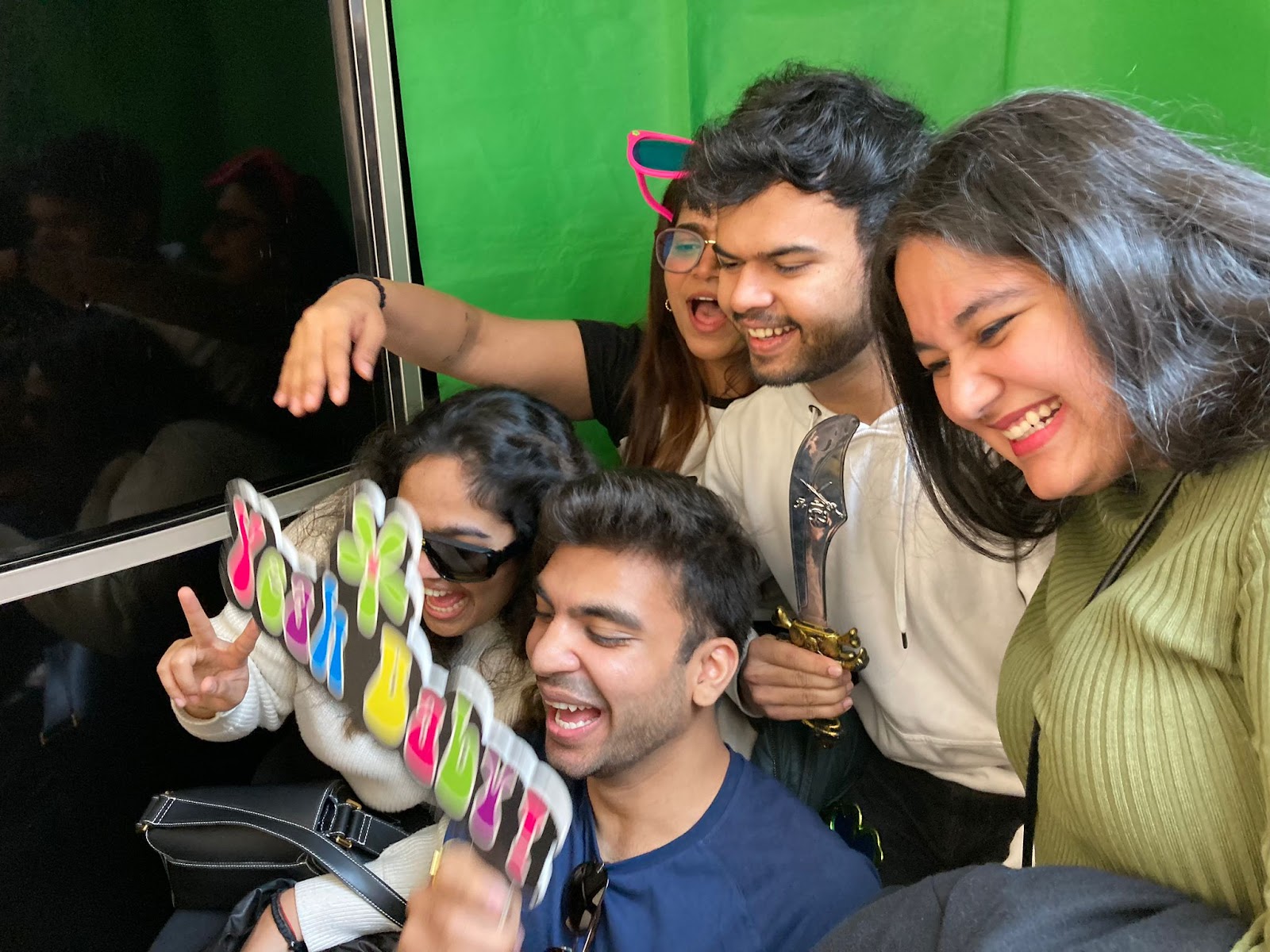
Freshers week can feel overwhelming for new university students - and equally challenging for the event organisers tasked with creating memorable experiences that help thousands of strangers become friends. If you're planning freshers activities, you'll know the pressure to get it right. Students arrive with high expectations, diverse backgrounds, and varying comfort levels with social situations.
The good news? Interactive games are one of the most effective ways to break down barriers naturally, create genuine connections, and ensure your freshers events are talked about for all the right reasons. With over 15 years of experience as corporate event specialists, we've seen firsthand how the right mix of interactive entertainment can transform nervous freshers into confident, connected students.
Why Interactive Games Are Essential for Successful Freshers Week Events
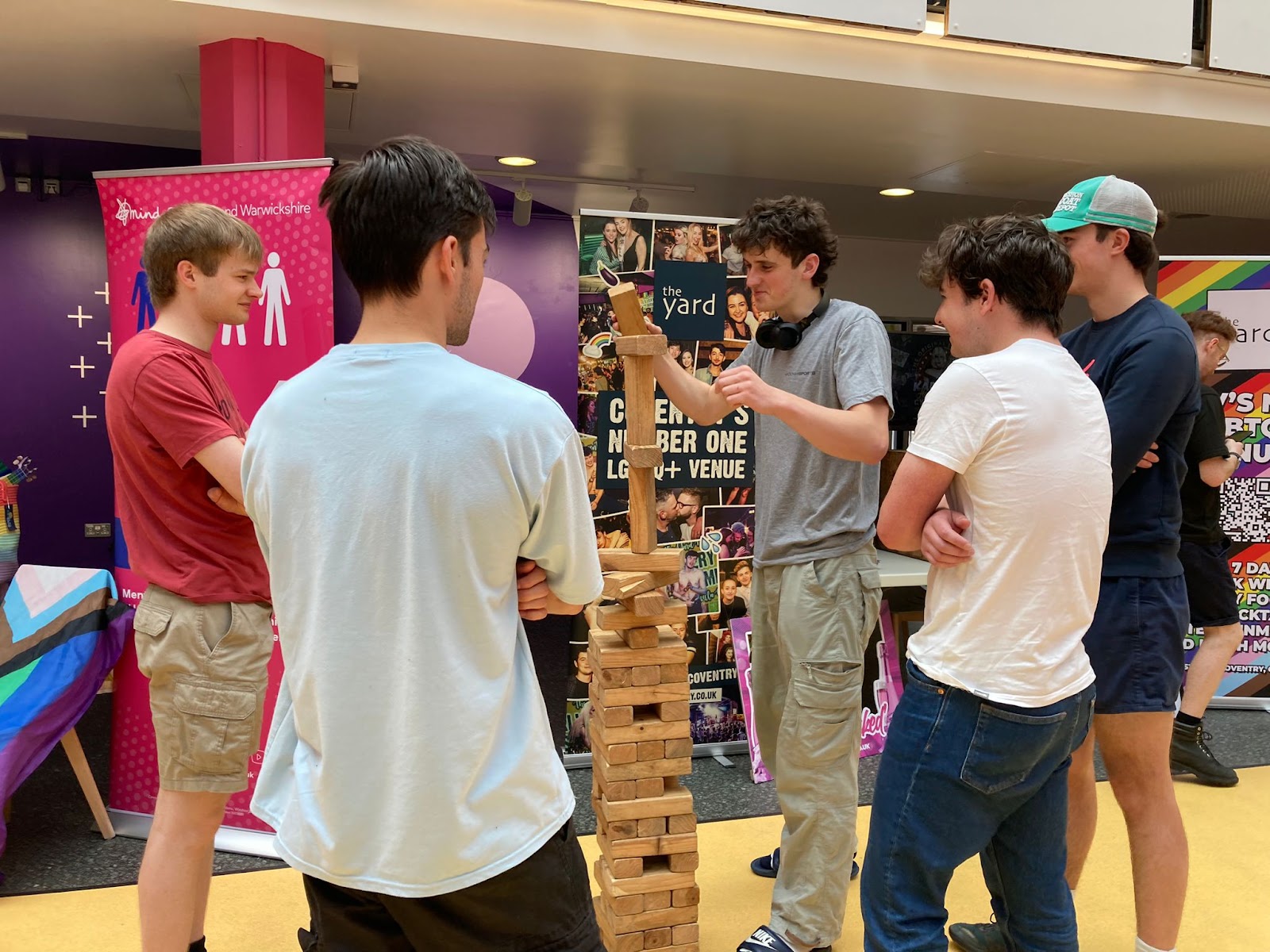
Freshers week presents unique challenges that traditional event formats simply can't address. You're bringing together students from different countries, cultures, and backgrounds - many of whom have never lived away from home before. The pressure to make friends quickly can be intense, and not everyone thrives in unstructured social situations.
Interactive games provide a natural solution to these challenges. They give students a shared focus that takes the pressure off forced conversations, whilst creating opportunities for genuine connections to develop. Rather than expecting students to network in abstract ways, games provide concrete activities that reveal personality, encourage teamwork, and generate the kind of shared experiences that form the foundation of lasting friendships.
What's more, well-chosen games can accommodate different personality types within the same activity. Whilst some students jump at the chance to be centre stage, others prefer supporting roles or simply watching and cheering. Interactive games allow for this natural variation in participation levels, ensuring everyone can engage in ways that feel comfortable.
For event organisers, games also provide structure and energy that keeps events moving smoothly. Rather than worrying about awkward silences or students standing around unsure what to do, interactive activities create natural flow and engagement that makes your job considerably easier.
10 Interactive Games Perfect for Freshers Week Ice Breaking
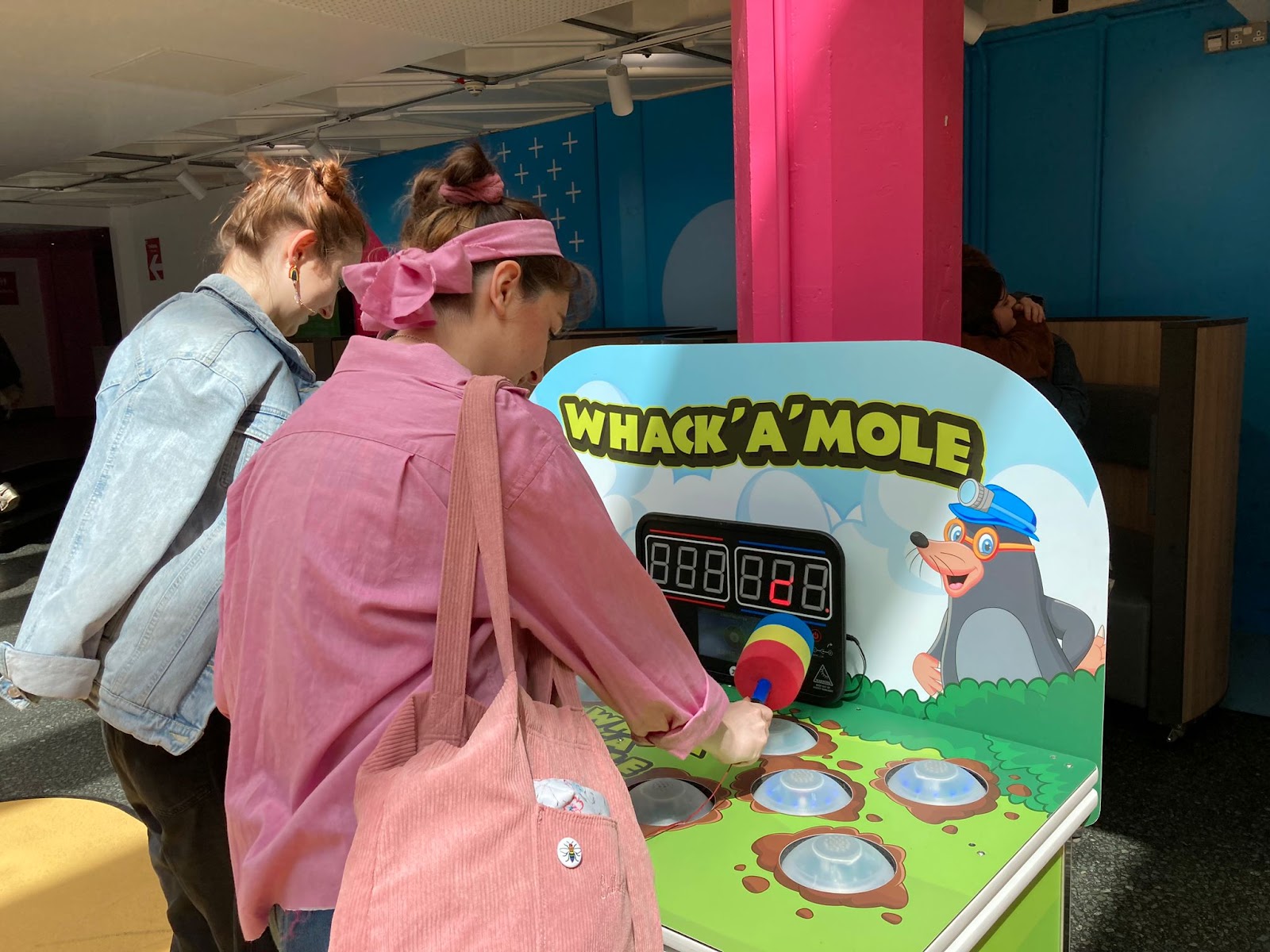
High-Energy Games for Large Groups
1. Human Knot Challenge
This classic team-building game works brilliantly for freshers events because it requires cooperation, communication, and a good sense of humour. Students form a circle, reach across to hold two different people's hands, then work together to untangle themselves without letting go.
The beauty of the human knot is that it breaks down physical barriers quickly - students have to work closely together and laugh at the inevitable confusion. It's particularly effective for international students, as it requires minimal verbal communication whilst encouraging plenty of interaction.
-
What you'll need: Just space and willing participants
-
Group size: 8-15 people per circle
-
Time required: 10-15 minutes per round
2. Speed Networking with Props
Transform traditional speed networking by adding interactive elements. Set up stations with different props - unusual objects, conversation starter cards, or quick challenges that pairs complete together before moving on.
This format works well because it gives students something to focus on besides themselves, making conversations flow more naturally. The props serve as excellent ice breakers, and the timed rotation ensures everyone meets multiple people without lengthy awkward pauses.
-
What you'll need: Timer, variety of props or conversation starters
-
Group size: Any even number
-
Time required: 30-45 minutes
3. Interactive Quiz Competition
Create teams randomly and run a quiz that mixes general knowledge with fun facts about your university, local area, and student life. The key is balancing questions so international students aren't disadvantaged whilst ensuring local students don't dominate.
Quiz competitions naturally encourage teamwork and reveal different strengths within groups. They're also excellent for creating talking points that continue long after the game ends.
-
What you'll need: Quiz questions, scoring system, small prizes
-
Group size: Teams of 4-6 people
-
Time required: 45-60 minutes
Tech-Enhanced Interactive Games
4. Digital Reaction Games
Professional-grade reaction games like Strike a Light or Batak walls create instant excitement and draw crowds. These high-tech games test reflexes and coordination whilst providing clear, measurable challenges that students can rally around.
The competitive element naturally creates cheering sections and conversations, whilst the quick rounds mean lots of students can participate without long waits. These games are particularly effective as centrepiece attractions at freshers fairs.
-
What you'll need: Professional game hire (requires power supply)
-
Group size: Individual play with audience engagement
-
Time required: Ongoing attraction
5. Virtual Reality Experiences
VR stations create natural gathering points where students take turns experiencing virtual worlds whilst others watch and react. The technology itself is a conversation starter, and the shared experience of watching reactions creates bonding opportunities.
Choose experiences that are accessible to beginners and likely to generate entertaining reactions - virtual rollercoasters or simple games work better than complex scenarios requiring gaming experience.
-
What you'll need: VR headsets, suitable content, supervision
-
Group size: 1 player with 5-10 observers
-
Time required: 3-5 minutes per person
6. Interactive Gaming Stations
Set up familiar multiplayer games like racing simulators or motion-controlled sports games. These work particularly well because students often know the games already, reducing barriers to participation.
Gaming stations appeal to students who might find traditional ice breakers uncomfortable whilst still encouraging social interaction through shared play and friendly competition.
-
What you'll need: Gaming consoles, multiplayer games, screens
-
Group size: 2-4 players with observers
-
Time required: Ongoing entertainment
Creative and Collaborative Activities
7. Collaborative Art Projects
Provide large canvases and art supplies for groups to create collaborative pieces - perhaps themed around hopes for university life or representations of their diverse backgrounds. The key rule is that participants must talk to others whilst contributing to the artwork.
This activity works well for students who prefer creative expression to competitive games. It's also excellent for creating lasting displays that remind students of their freshers week experience throughout the year.
-
What you'll need: Large canvases, art supplies, protective coverings
-
Group size: 10-20 people per canvas
-
Time required: 45-60 minutes
8. Photo Scavenger Hunt
Create lists of campus locations, objects, or scenarios that teams must photograph. Include items that encourage creativity - "your team pretending to be a famous painting" or "finding something that represents your course."
Scavenger hunts get students exploring campus whilst working together and being creative. The photo element creates shareable memories and social media content that extends the impact beyond the event itself.
-
What you'll need: Task lists, smartphones, designated areas
-
Group size: Teams of 3-5 people
-
Time required: 60-90 minutes
9. Talent Showcase Mixer
Instead of a traditional talent show, create rotating stations where small groups share skills or interesting facts about themselves - anything from showing dance moves to explaining unusual hobbies or demonstrating party tricks.
This format is less intimidating than performing for large audiences whilst still allowing students to show their personalities and discover shared interests.
-
What you'll need: Designated areas, possibly microphone for larger groups
-
Group size: Circles of 8-12 people
-
Time required: 30-45 minutes
Classic Games with Fresh Twists
10. Giant Jenga with Questions
Use professionally-made giant Jenga blocks, but write questions or challenges on each piece. When students remove blocks, they answer the question or complete the challenge before placing it on top.
This combines the familiar satisfaction of Jenga with structured conversation starters. The physical element keeps things engaging whilst the questions help students learn about each other naturally.
-
What you'll need: Giant Jenga set, prepared questions
-
Group size: 6-10 people per game
-
Time required: 20-30 minutes per round
Choosing the Right Games for Your Freshers Event
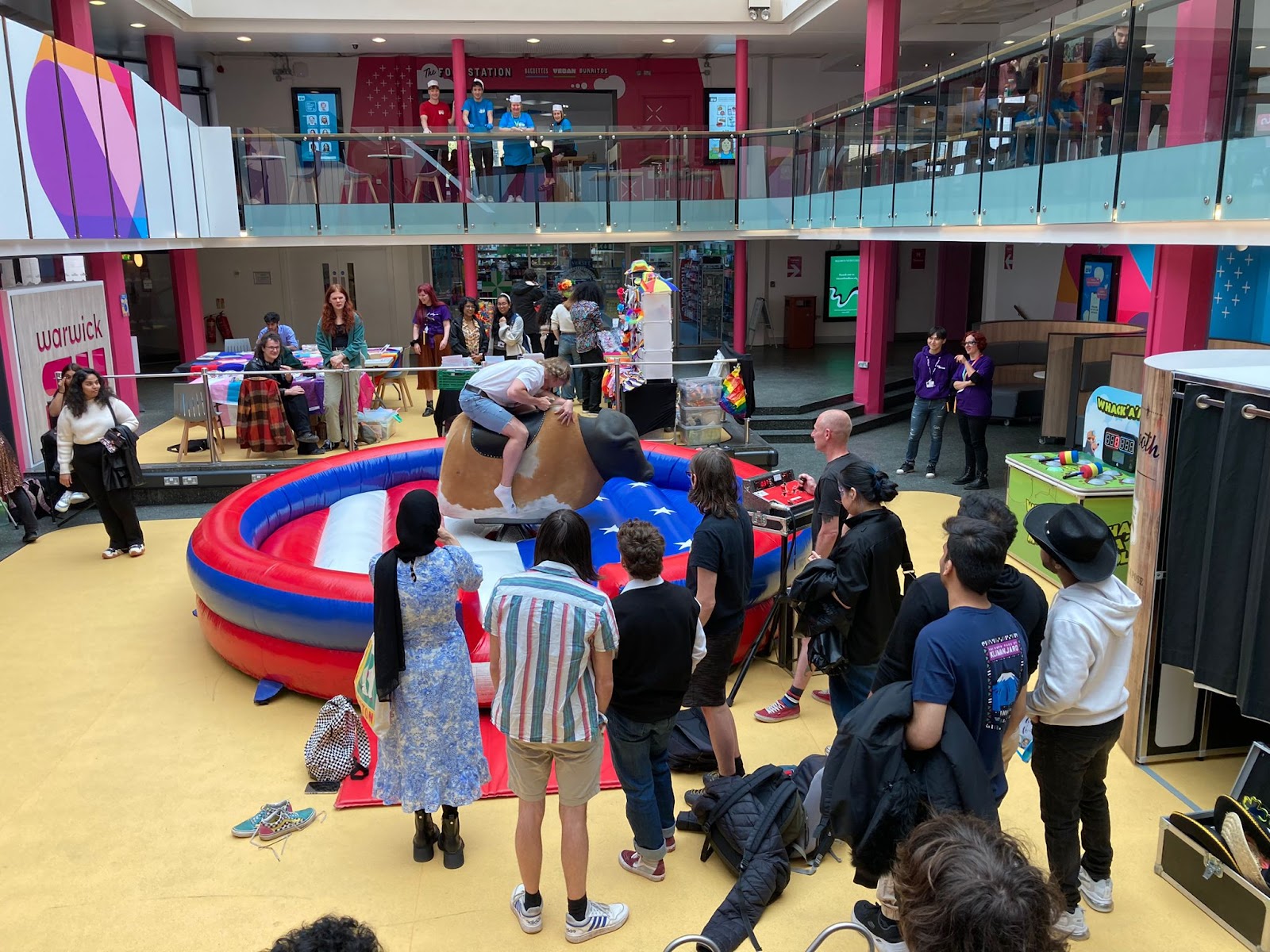
Selecting appropriate games requires careful consideration of your specific circumstances. Start by evaluating your venue constraints - indoor spaces limit high-energy physical games, whilst outdoor events need weather backup plans. Consider your expected attendance numbers and whether you're planning multiple simultaneous activities or single large-group events.
Think about your student demographic carefully. Universities with large international populations benefit from games requiring minimal verbal communication, whilst established local student communities might enjoy more culturally-specific activities. Mixed groups often work best with activities that reveal diverse backgrounds as strengths rather than barriers.
It's worth considering the timing within your broader freshers programme. High-energy games work well early in events when energy is high, whilst more relaxed activities suit later periods when students might be getting tired. Always plan more activities than you think you'll need - successful events often run over time, and having backup options prevents awkward gaps.
Budget considerations vary significantly depending on whether you're hiring professional equipment or organising DIY activities. Professional-grade interactive games create impressive focal points and handle heavy usage well, whilst simpler activities can be highly effective with proper facilitation and preparation.
Practical Tips for Running Successful Ice Breaker Games
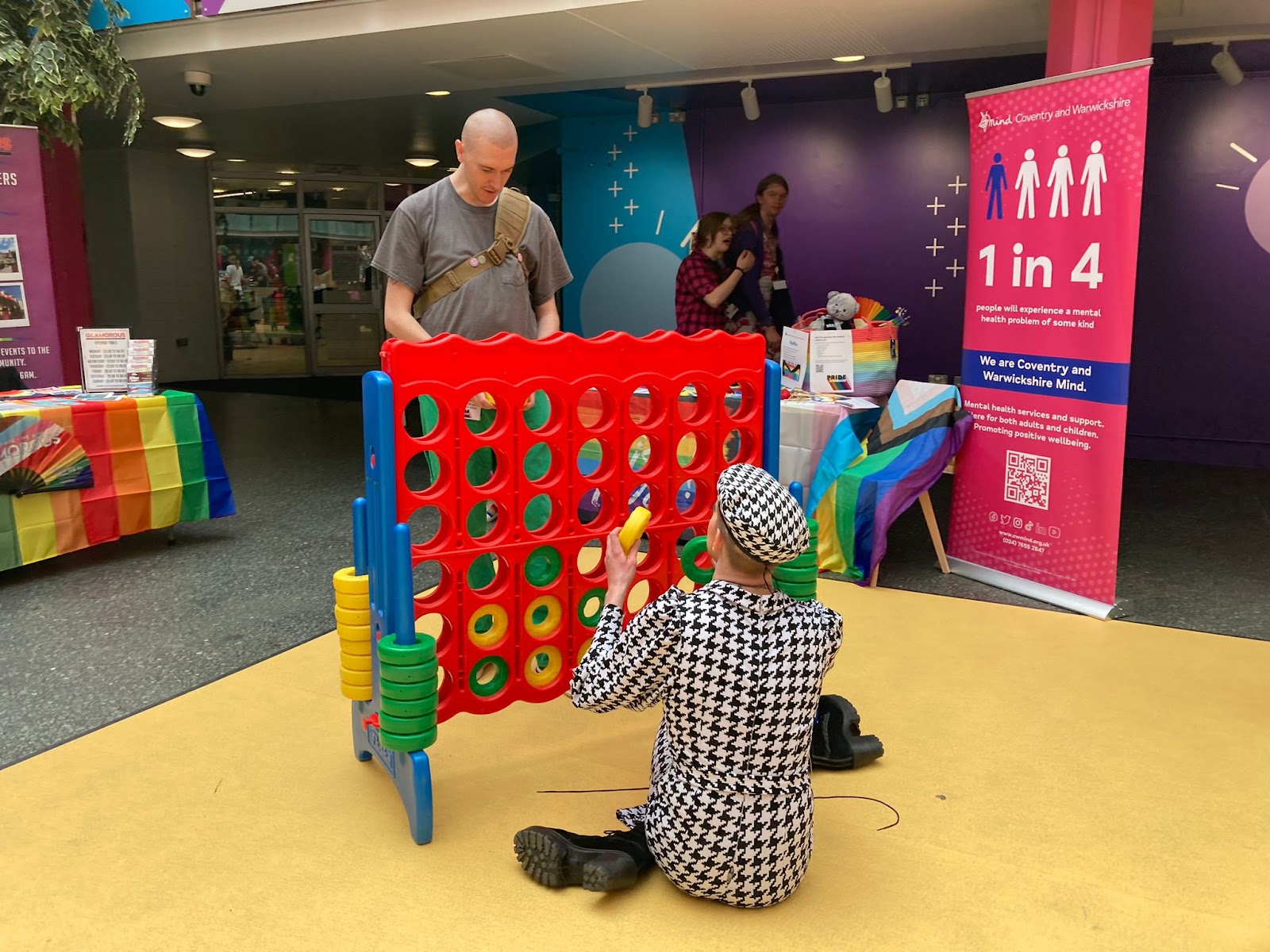
The success of interactive games often depends more on facilitation than the activities themselves. Ensure you have enthusiastic staff members who can explain rules clearly, encourage participation without pressuring reluctant students, and keep energy levels high throughout events.
Plan for different participation levels from the start. Not every student will want to be actively involved in every game, and that's perfectly fine. Create natural observer roles - scorekeeping, cheering, photography - that keep less active students engaged without forcing uncomfortable participation.
Have weather contingencies ready for outdoor events. British weather can be unpredictable, and nothing kills event energy faster than scrambling for indoor alternatives when rain arrives. Either choose games that work in light rain or have clear backup plans that transition smoothly.
Consider the practical logistics carefully. Games requiring equipment setup need adequate time buffers, especially if you're running multiple activities simultaneously. Ensure you have enough staff to supervise different areas and manage transitions between activities.
Create natural conversation opportunities during and after games. Build in brief discussion periods where teams can celebrate successes, compare strategies, or simply chat whilst transitioning to new activities. These informal moments often produce the most meaningful connections.
Making Your Freshers Games Inclusive and Accessible
Inclusive game selection ensures all students can participate meaningfully in your freshers events. Consider physical accessibility from the planning stage - many traditional games can be adapted for students with mobility differences without compromising the core experience.
For international students, choose games that don't rely heavily on cultural knowledge or rapid language processing. Visual games, physical challenges, and activities with clear demonstrated rules work better than word-based games or those requiring cultural references.
Be mindful that introverted students might find large group activities overwhelming. Offer smaller group alternatives or observation roles that still provide social connection without demanding centre-stage participation. Many successful freshers events run multiple activities simultaneously, allowing natural self-selection based on comfort levels.
Consider cultural sensitivity in competitive activities. What feels like friendly rivalry to some students might feel uncomfortably aggressive to others. Focus on collaborative challenges and personal improvement rather than elimination-style competitions.
Remember that freshers week can be emotionally intense for many students. Build in quiet spaces and gentler activities alongside high-energy games, ensuring students who need breaks can step back without missing out entirely.
Hire Interactive Games for Freshers Week Today
Planning memorable freshers week events takes considerable thought and preparation, but interactive games provide proven solutions for creating connections and positive experiences. Whether you're organising intimate welcome sessions or large-scale freshers fairs, the right mix of activities can transform nervous new students into confident university community members.
If you're looking for professional-grade interactive entertainment for your freshers events, our experienced team understands the unique challenges of university welcome weeks.
With over 15 years of experience helping institutions create memorable experiences, we can help you choose the perfect mix of games and activities for your specific event needs. Get in touch to discuss how interactive entertainment can make your freshers week unforgettable for all the right reasons.
Frequently Asked Questions
How long should ice breaker games run during freshers events?
Most ice breaker games work best in 15-30 minute segments, with natural break points for students to chat and move around. Longer activities risk losing attention, whilst shorter ones don't allow enough time for meaningful interaction. Plan for 2-3 games per hour with transition time between activities.
What's the ideal group size for freshers week interactive games?
This depends heavily on the specific game, but most work well with 8-15 participants. Smaller groups can feel exclusive, whilst larger ones make individual participation difficult. For bigger events, run multiple versions of the same game simultaneously rather than trying to accommodate everyone in single activities.
How do you encourage shy students to participate in freshers games?
Start with low-pressure activities that don't require individual performance, and always provide observer roles that still involve engagement. Pair shy students with more outgoing partners rather than putting them in groups where they might get overwhelmed. Most importantly, never force participation - gentle encouragement works much better than pressure.
What equipment do you need for successful freshers week ice breakers?
This varies enormously depending on your chosen activities. Simple games might need nothing more than paper and pens, whilst tech-enhanced options require professional equipment and power supplies. Always have backup supplies and simple alternatives that don't need equipment in case of technical issues.
Can interactive games work for both indoor and outdoor freshers events?
Absolutely, though you'll need different approaches for each setting. Outdoor games can be more physical and handle larger groups, whilst indoor activities focus more on conversation and creativity. Many games adapt well to both settings with minor modifications to suit the space available.
How do you adapt ice breaker games for different cultural backgrounds?
Focus on universal human experiences rather than cultural-specific knowledge. Physical games, visual challenges, and activities based on personal preferences work well across cultures. Avoid games requiring rapid language processing or cultural references, and always explain rules clearly with demonstrations rather than just verbal instructions.
<< Return to news